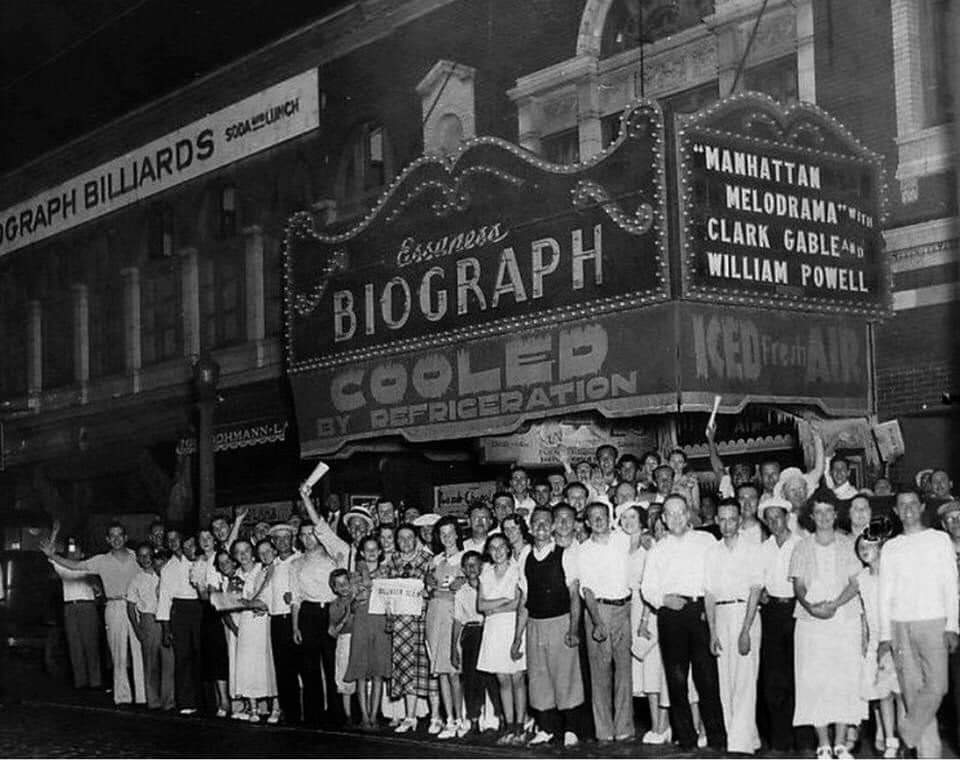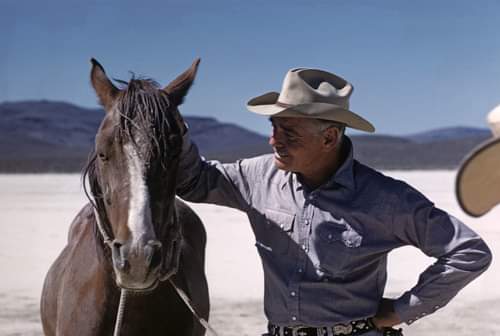
No, not Charles III. That guy isn’t sexy or fabulous at all, not at all – in my humble opinion, and I could care less about this weekend’s coronation, which celebrates an empire whose role in the slave trade and the colonization of a huge swath of real estate all over the globe is softened, and too often forgotten or overlooked because ~ oh because of those plummy accents, and great TV shows, Shakespeare, too, I guess, and yes, the royal fucking family in all their collective dysfunctional glory. Puh-leeze. Palestine. Nigeria. Kenya. South America. The U.S., Pakistan, and India – among many, many others, all these countries bear the legacy wounds and scars of the British Empire’s grasping, greedy, grotesquely punishing depredations. Independence Day, ours and that of sixty-five other countries around the world (and counting), is the single most common national holiday after Christmas. Really? Really.
No. I am not speaking of Charles Windsor or, rather, Charlie Saxe-Coburg and Gotha, which is the royals real, pre-WWI, name. I am speaking of course of The King, The King: Clark Gable. Clark Gable, the anointed King of Hollywood’s Golden Era and primas rex of my pitter-pattery heart since oh – since forever. Clark Gable. Otherwise known simply as Gable. Gable, Gable, Gable, Gable, Gable. Or, in his better-known roles, Clark Gable as Rhett Butler (GWTW), as Peter Warne (It Happened One Night), as Fletcher Christian (Mutiny on the Bounty), as Dennis Carson (Red Dust), as Alan Gaskell (China Seas), as Gaylord Langland (The Misfits), as Blackie Gallagher (Manhattan Melodrama), as Jack Thornton (Call of the Wild), as Jim Lane (Test Pilot), as Andre Verne (Strange Cargo), as Van Stanhope (Wife vs. Secretary), as Victor Marswell (Mogambo), as Blackie Norton (San Francisco), Ace Wilfong (A Free Soul)… I could go on and on, and yes, I’ve seen them all, although I haven’t viewed The Misfits as often as many of the others; it’s simply too heartbreaking to do so, due to the subject matter, the well-known drama going on during the shoot, and the sad fact that Gable, Monroe, Thelma Ritter and Montgomery Clift would all die not long after the film wrapped, each of them much, much too soon. I’ve even seen Parnell, which is a total turkey, along with a few other lesser films he could have skipped but a man has got to work, y’know?
Clark Gable. I am sure I knew who he was before Mr. Solomon took his fifth-grade history class, myself included, to the Fleischmanns’ movie theatre for a special screening of GWTW, but after that, I was a goner. Wow. What a presence. That smile. That voice. That bad boy insouciance. That laugh. I was ten, and it wasn’t until a couple of years later that I put it together he’d been dead practically since I was born, but whatever, who cares, he’s alive to me! A solid decade before cable TV got to the farm, and given we got one channel, and lousy reception of one other, it was tough getting to see his films, but I tracked them down, watching them alone in the living room at midnight on a Friday with the sound turned way down, or at nine a.m. on a Tuesday morning in the middle of summer. I sussed the days and times when his movies would be on in the Sunday Press outlining that week’s line-up, and ticked off my list of ‘have seens’ with glee.

Gable. Hey, everyone has got to have a hobby. Mine was enjoying the living hell out of this classic film actor, and old movies, especially 1930s black and white pre-code specials, which are among the best written, funniest, most female-centric films ever made by the glitter machine. I thank the movies lovers who, before me, preserved these gems, running movie houses in New York City, where I spent many afternoons and evenings indulging in big screen showings of the best classic films ever made and even some not so classic films, which provided great context and content for this wee movie nerd.A Free Soul, which truly put Gable on the map in 1931, is so over the top melodramatic, it’s hilarious – yet, the film manages to be deeply moving as well, with a final courtroom scene that is a real corker, featuring Lionel Barrymore, who stars along with Gable, Norma Shearer, Leslie Howard, and the marvelous character actor James Gleason (no relation to Jackie, Boomers).
Oh, to return to fast-paced pre-code-style films, featuring a ton of character actors, including actual old and imperfect looking real folks, and a lot of them, with women’s stories front and center. The code I refer to is the Hays Code, which censored film content from 1934 – 1967, although its power waned with the rise of Television in the mid-fifties, upending the old established order. By the late fifties a tsunami of new wave films began arriving from Europe, making headlines as well as money; young American filmmakers didn’t give a shit about rules that were, essentially, unenforceable except by outdated agreement, agreements that didn’t fly during a decade of cultural upheaval and change.
The other problem with the Hays Code was that it’s petty nonsense negated and suppressed the necessary and real messiness of humanity; the code spelled death to nuance, complexity, depth, and the stories of those who were on the margins of power; it suppressed risk, and daring, limiting the possibilities of art and of story. What it changed in film from the late 30s to the 50s was a gradual and finally overwhelming decentering of women’s lives and stories, favoring male-centric stories because they were less likely to be ‘messy’. When you forbid mentions, depictions, and references to sex, sexuality, pregnancy and childbirth, including filmed photography of pregnant women at any stage of pregnancy, literally erasing multiple female story-lines, you will inevitably decenter women, and girls. I also think it’s not an accident that the 50s and 60s saw more than one closeted gay male actor emerge as a major sex symbol in Hollywood (Hudson, Hunter, Clift, Perkins, etc.), the film business execs subconsciously keeping their heroines pure (your swooning fan-girl wives and daughters too), by pairing them up on screen with men who prefer to sleep with men, even if it’s never openly acknowledged, and certainly isn’t in any script. Clark Gable, by then doing relatively neutered versions of his former performances also thanks to Hays, was still never an entirely safe suitor, and wasn’t that a big part of the fun? The introductory sequence of Rhett Butler’s character in GWTW is a study in the power of innuendo, and Gable’s reputation on screen to that point; no wonder this little chickadee was instantly lost in a crush. And, it managed to get around the Hays Code, even if Joe Breen and his co-censor/co-creeps tried to get the iconic line “Frankly my, dear, I don’t give a damn” taken out of the film because damn was a banned word (yes, really, see a truncated list of that and more below). That line stayed in because producer David Selznick appealed the ban, and use of the word ‘damn’, to the Motion Picture Producers and Distributor’s Board, and won. Thank goodness for that. “Frankly my dear, I don’t give a hoot.” “Frankly my dear, I don’t care.” “Frankly my dear, I am unmoved.” “Frankly my dear, I’m outta here?” Unthinkable. And not what Margaret Mitchell wrote (although Gable and the screenwriters added frankly).

Just for shit and giggles, from a long, long list of no-nos, here’s the highlights of what the Hays Code didn’t want to see or hear on the screen (my editorial comments are italicized, their un-ironic additions are not): profanity including the words God, Lord, Jesus, Christ (unless they’re used reverently in connection with proper religious ceremonies), Hell, S.O.B., damn, Gawd, and every other profane and vulgar expression however it may be spelled; any licentious or suggestive nudity—in fact or in silhouette; scenes of actual childbirth—in fact or in silhouette; ridicule of the clergy; willful offense to any nation, race or creed (but also, unironically, they banned depictions of ‘miscegenation’). And, piling on, the Hays Code urged filmmakers and producers to be cautious regarding the use or depictions of The Flag; brutality and possible gruesomeness; techniques of committing murder by whatever method; methods of smuggling; sympathy for criminals; attitude toward public characters and institutions(what the hell does that mean?!); men and women in bed together (lolol, yes we wouldn’t want that!); the institution of marriage (that sacred institution, c’mon dudes, and it was mostly dudes, Catholic dudes, making this shit up); surgical operations; excessive or lustful kissing, particularly when one character or the other is a “heavy” (a.k.a. a criminal type, you Philistines).
Gable, Gable, Gable, Gable, Gable.
More on the Hays Code generally, as well as GWTW’s specific struggles with it:
https://medium.com/@kristinhunt/hollywood-codebreakers-gone-with-the-wind-goes-on-trial-c2ed7b65aa68
https://www.npr.org/2008/08/08/93301189/remembering-hollywoods-hays-code-40-years-on
And then there’s this, the anointing of the King (near the end of the clip), the actual King and yeah, I mean GABLE, in It Happened One Night
